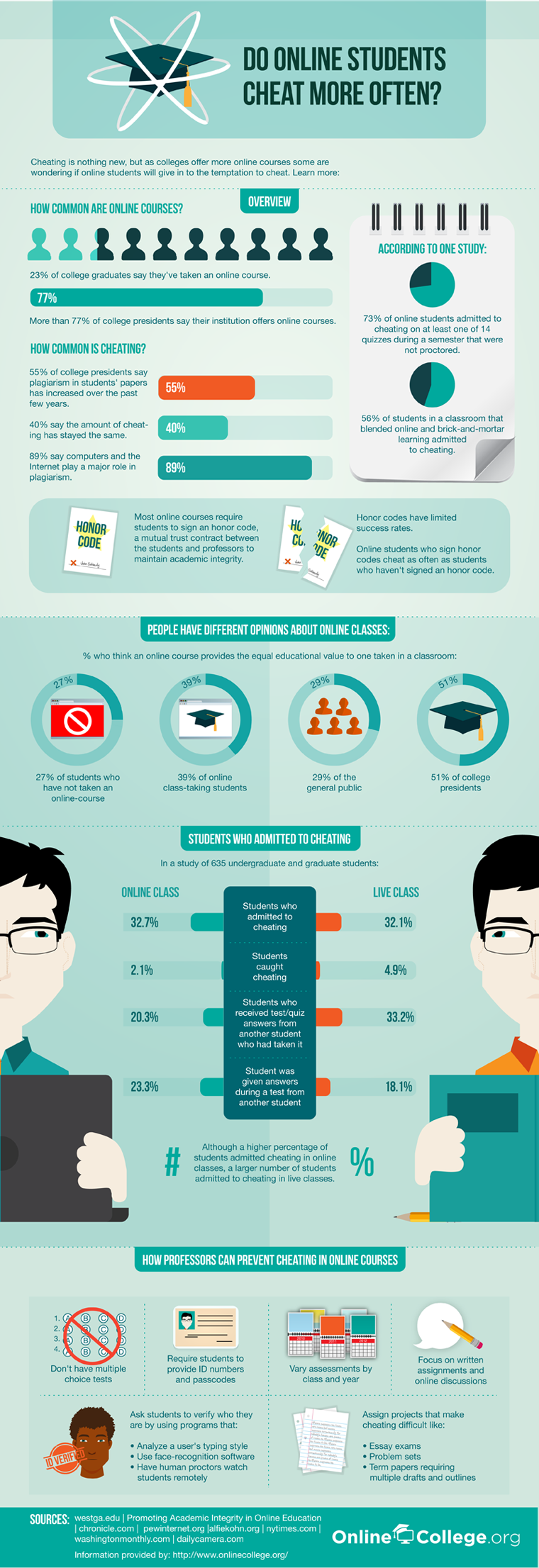Does Distance Learning Encourage Cheating? [Infographic]
There is no doubt that cheating has become easier for college students. The influx of smartphones — which are essentially handheld encyclopedias — has made cheating extremely tempting, especially in large lecture halls or online classes. Even though technology to prevent cheating has developed at a fast pace, students who are inclined to cheat always seem to find a way around any roadblocks. Online learning has added a new layer to this already complex situation, according to The Chronicle of Higher Education.
The promise of such systems is that education can be delivered cheaply and conveniently online. Yet as access improves, so will the number of people gaming the system, unless courses are designed carefully.
With the cost of college skyrocketing, you can understand why students feel pressure to keep their grades up. Here are a few stats from a survey by OnlineCollege.org that really stand out:
- 73 percent of online students admit to cheating on a quiz that was not proctored.
- 89 percent of college presidents say that computers and the Internet play a major role in plagiarism.
- 56 percent of students in classrooms that blended online and traditional learning admit to cheating.
Interestingly, the survey showed that the percentage of students who cheat in online classes is nearly identical to that of live classes. How are you preventing cheating at your school?









